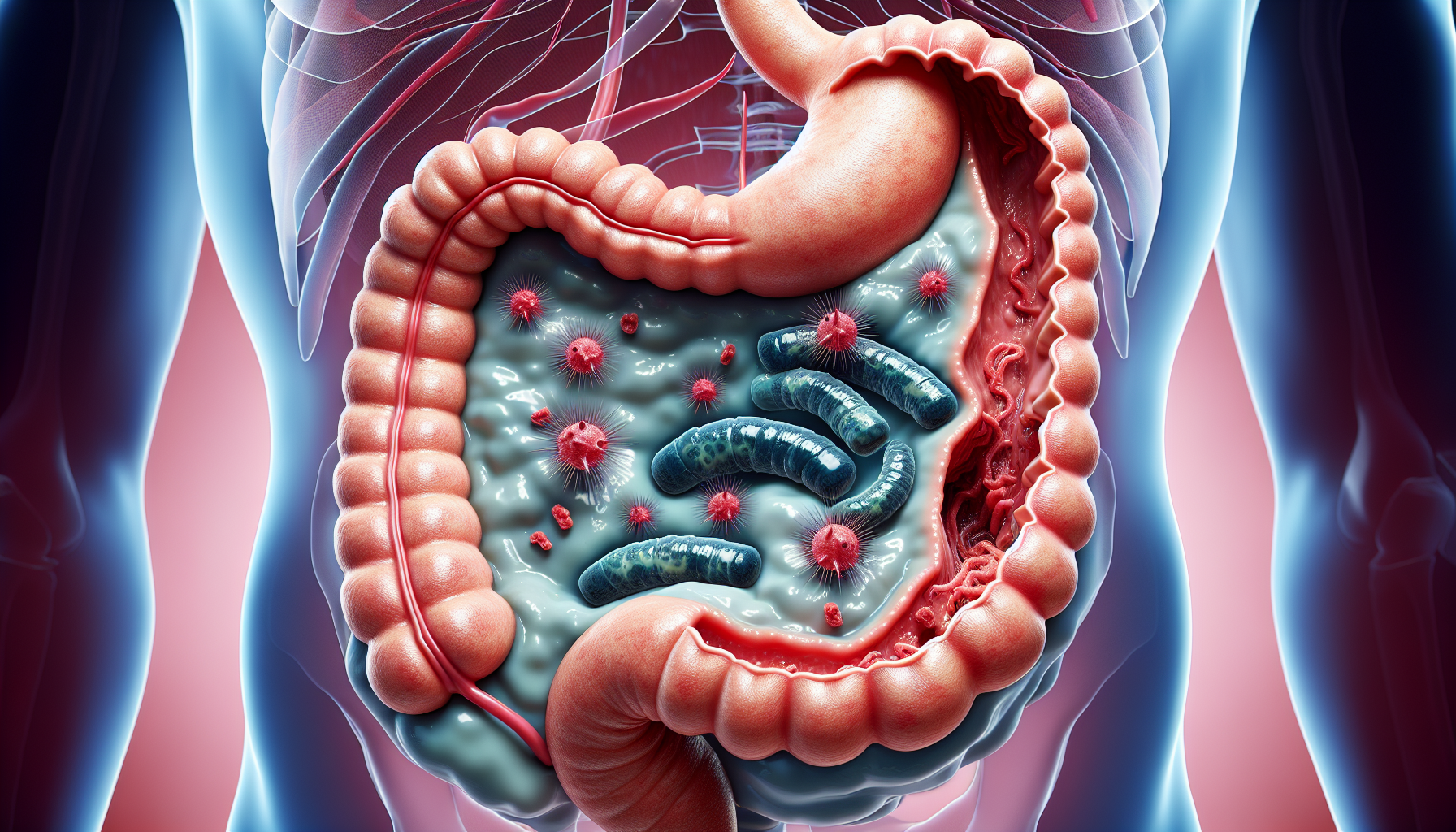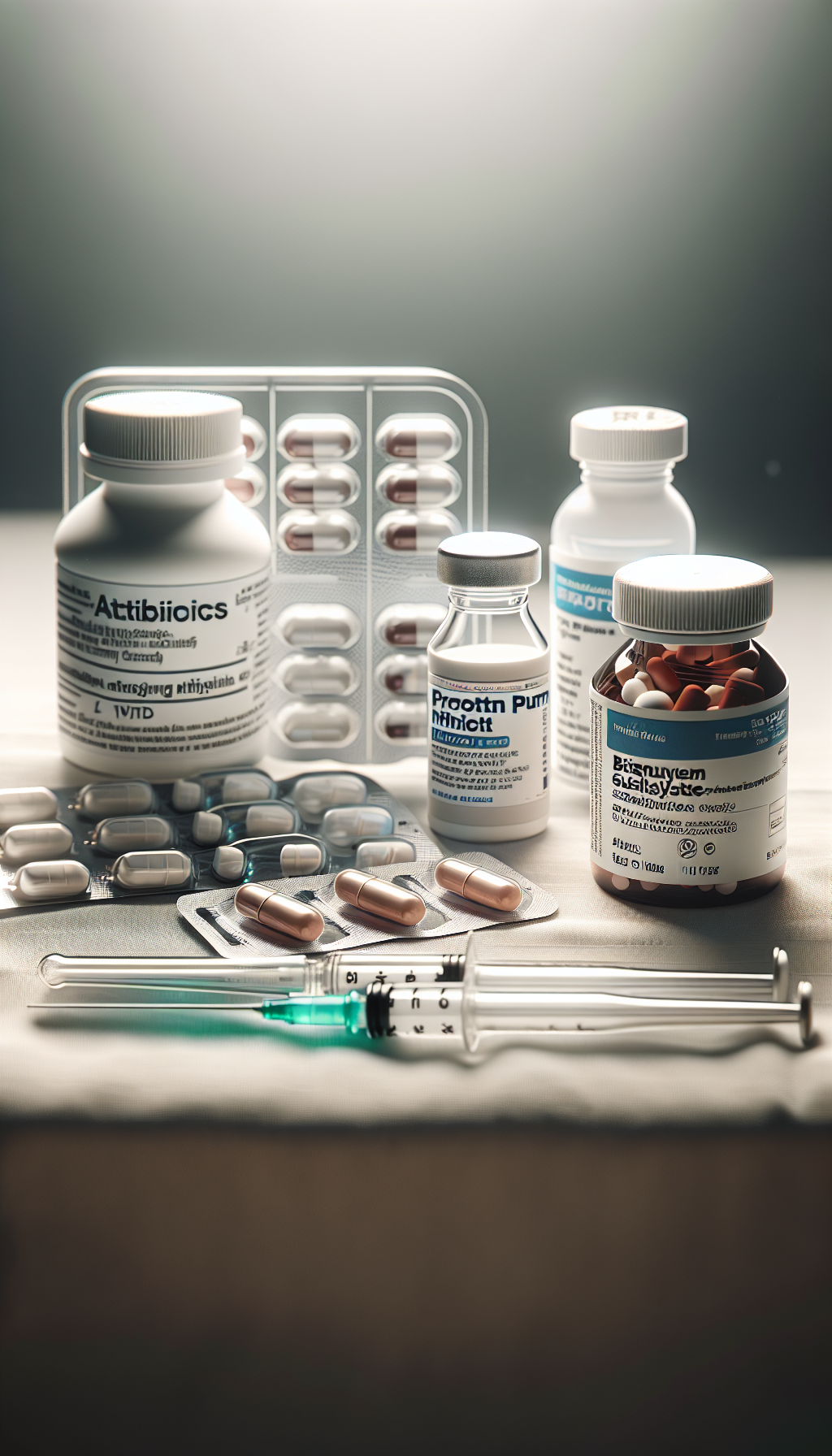Helicobacter pylori, more commonly known as H. pylori, is a type of bacteria that can cause infection in the stomach. This microorganism is believed to affect the gastrointestinal tract of more than half of the world’s population, although not all those infected will experience symptoms. Understanding how to identify and manage H. pylori infections is crucial for maintaining optimal digestive health and preventing potential complications such as ulcers and, in severe cases, gastric cancer.
What is Helicobacter Pylori?
H. pylori are spiral-shaped bacteria that can penetrate the stomach’s lining and reside there. The stomach’s acidic environment does not inhibit these bacteria; instead, they thrive by producing an enzyme, urease, which neutralizes stomach acid, creating a more hospitable environment for themselves. Over time, if left untreated, an H. pylori infection can lead to damage in the stomach and duodenum lining, causing ulcers and increasing the risk of gastric cancer.
Identifying H. Pylori Infections
The challenge with H. pylori is that many people who are infected do not show any symptoms. When symptoms do occur, they may include:
- Abdominal pain or discomfort, often in the area just beneath the ribs
- Bloating
- Nausea or frequent burping
- Loss of appetite
- Unexplained weight loss
- Heartburn
If you suspect an H. pylori infection, it is important to get tested. There are several tests available, including:
- Urea breath test: This is a non-invasive test that can directly detect the presence of H. pylori bacteria.
- Blood antibody test: While this can indicate if you’ve been infected with H. pylori at some point, it cannot distinguish between a current or past infection.
- Stool antigen test: This test looks for foreign proteins (antigens) associated with H. pylori infection in the stool.
- Endoscopy: In more severe cases or when ulcers are suspected, a doctor might recommend an endoscopy to take a closer look at the stomach lining and to obtain a biopsy.
Treatment of H. Pylori Infections
The standard treatment for an H. pylori infection involves a combination of medications to help kill the bacteria, reduce stomach acid, and protect the stomach lining. This typically includes:
- Antibiotics: To help destroy the bacteria. It is usually recommended to take a combination of two different antibiotics at the same time to increase the effectiveness and reduce the risk of resistance.
- Proton pump inhibitors (PPIs): These reduce the production of stomach acid to allow the lining of your stomach and duodenum to heal.
- Bismuth subsalicylate: This can sometimes be used alongside other medications to help protect the stomach lining.
It is essential to complete the full course of treatment even if symptoms improve before the medication is finished to ensure that the infection is fully eradicated.
Preventing H. Pylori Infections
Hygiene is a critical factor in preventing H. pylori infections. The bacteria can be transmitted from person to person via direct contact with saliva, vomit, or fecal matter. It can also be spread through contaminated food or water. Therefore, proper handwashing and food safety practices are important.
The Role of Diet in Managing H. Pylori Infections
While antibiotics are the mainstay of H. pylori treatment, diet plays a supportive role in managing infections. Certain foods may help soothe the stomach lining and promote healing, while others can exacerbate symptoms and should be avoided. For more detailed guidance on diet’s role in digestive health, consider reading "The Role of Diet in Managing Crohn’s Disease" which, while focusing on a different condition, offers valuable insight into how dietary choices can impact gastrointestinal health.
Understanding Digestive Health and H. Pylori
H. pylori infections are just one aspect of digestive health. For more comprehensive information on maintaining a healthy digestive system, "The Importance of Regular Medical Screening for Colorectal Health" is a valuable resource. Regular screenings can help catch issues like H. pylori infections early on, making treatment more effective.
Additionally, "Natural Ways to Combat Bloating and Improve Digestion" offers practical tips that can be beneficial for those experiencing H. pylori-related symptoms, as bloating and indigestion are common complaints.
External Resources for Further Reading
To gain a deeper understanding of H. pylori and its impact on health, consult these niche resources:
- International Foundation for Gastrointestinal Disorders provides comprehensive information on gastrointestinal diseases, including those caused by H. pylori.
- The American College of Gastroenterology offers guidelines and patient education materials on various GI conditions.
- Centers for Disease Control and Prevention – H. pylori Information provides detailed factsheets and data on H. pylori infections.
The Importance of a Holistic Approach
While focusing on H. pylori is crucial, it’s important to maintain an overall healthy lifestyle to support digestive health. Regular exercise, managing stress, and avoiding substances that can irritate the stomach, such as alcohol and certain pain relievers, also play a role in your digestive well-being. For more information on how lifestyle factors can influence digestive health, "How Proper Hydration Enhances Digestive Function" provides valuable insights into the importance of staying hydrated for gut health.
Final Thoughts
Identifying and treating H. pylori infections is a significant step in preserving your digestive health and preventing more serious complications. If you are experiencing symptoms or have concerns about H. pylori, consult with a healthcare professional for proper testing and treatment. Remember, a proactive approach to health is always the best defense.
For more information on related health topics, explore the wealth of articles available on Avix Health, your trusted source for health and wellness information.



